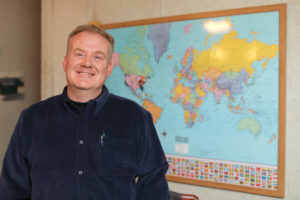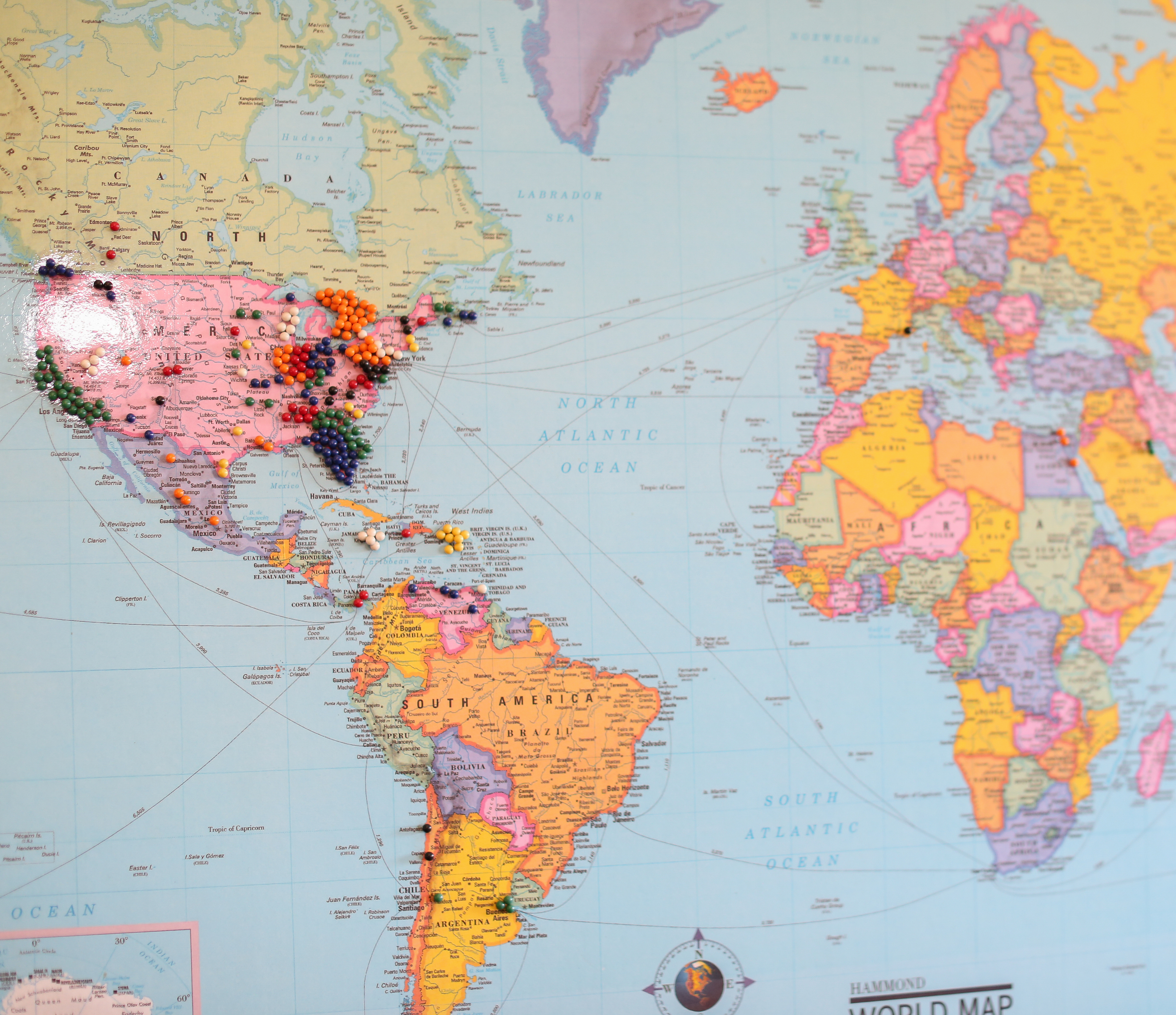Even the basics of international commerce felt foreign to Bruce Roberts.
He knew how to ship something via UPS but didn’t have a clue how international ocean freight worked. He didn’t know how helpful a Skype account or making a website friendly to international customers could be in attracting overseas clients.
But Roberts needed to learn those skills, and fast, after purchasing ShotKing, a company based in Adel, Georgia, that manufactures machines needed in heavy industry. In such a niche market, there was no way he could profit just selling his product locally.
“It’s absolutely necessary for us to cover the planet,” he said. “I literally had no clue about selling internationally. Who do you call when you don’t know these things?”

Roberts called the Universty of Georgia’s Small Business Development Center. The SBDC is one way that the University of Georgia is making a positive economic impact on the state—a $5.7 billion impact in the last year alone.
In the case of ShotKing, SBDC helped grow the business, which grows revenues for the company and the state.
In 2008, Roberts enrolled in ExportGA, an SBDC program run by consultants who teach entrepreneurs the basics of exporting while pairing them with an intern from UGA’s Terry College of Business to help with market research.
About half of the companies that enroll in ExportGA are from South Georgia, many in rural areas like Adel.
With the SBDC’s help, Roberts was able to revitalize ShotKing, which builds machines pioneered after World War II to clean metal parts. The machines use shot blasting, a technique similar to sand blasting, where small steel pellets are fired at high speeds to clean metal surfaces. For example, the process is used by propane gas distributors to clean and reuse propane tanks, as well as by railroads and the precious metals and mining industries to refurbish equipment.

SBDC consultants set Roberts up at an international trade show in Chile and introduced him to people on the ground who helped him identify clients. The SBDC later helped plan his trip to the site of western Canada’s booming oil sands. Today, nearly half of ShotKing’s sales come from exports to 22 countries.
“The first time I met Bruce, I knew we had a client who was willing to be proactive,” said SBDC consultant Dimitris Kloussiadis. “He’s applied everything he learned. He’s really gone after it, expanding into Bolivia and Argentina in the last year. It’s a company that’s moving impressively.”
“ShotKing is an example of why you really should go international as a small business in a specific market,” SBDC Director of International Trade Rick Martin said. “If your particular industry takes a downturn, that could be it for your business. An international market that may not have the same cycles as a domestic one will help you pull through.”
Finding international clients can be a key to survival for many of these companies. Roberts said the international expansion is one reason ShotKing is on solid footing today, with 22 employees and growing.
On a wall inside the door to the company’s main office is a world map with pushpins showing sales from Canada to South America to Siberia to the Middle East. A laminated sheet listing dimensions of international shipping containers is also on the office wall. Knowing the size limitations when shipping overseas was one of those little, technical elements of exporting Roberts learned from the SBDC.
Today, he keeps those cheat sheets—and the SBDC phone number—near by. It came in handy recently when he had to break down a machine into a handful of containers to get it to a customer in Chile.
“Having these folks at the SBDC to call on is great,” Roberts said. “We would’ve just muddled through without them. We’d be a lot smaller operation.”
Throughout the state, many rural communities are surviving and even thriving thanks to the University of Georgia, the state’s flagship university. The SBDC is just one way rural communities are adapting to the new economy. On any given day more than 450 faculty and staff from UGA Public Service and Outreach units and about 1,000 from UGA Cooperative Extension are spread throughout Georgia:
— conducting assessments for rural hospitals so that they can continue to receive federal funding to operate;
— helping economic development professionals learn the skill sets they need to attract new industry to Georgia;
— working alongside fishermen to help diversify the state’s coastal economy;
— growing leaders who can take their communities to the next level; and
— providing the business tools to farmers so they can succeed in an increasingly competitive market.
For more than 200 years, the University of Georgia, as the land- and sea-grant institution, has worked throughout the state to create communities with educated citizens, strong civic and business leaders, good infrastructure, a skilled workforce, and amenities that help provide a positive quality of life, all key to attracting new companies and jobs. The University of Georgia continues to be uniquely positioned to boost the economic vitality of the state and increase prosperity for all Georgians.
This is part of a series of stories about UGA and economic development in rural Georgia.


